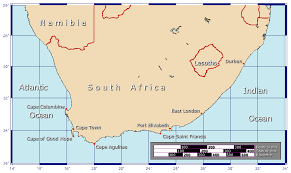The suspension of traffic through the Suez Canal has compounded the problems of shipping lines, which were already facing disruptions and delays in the supply of retail goods to consumers, according to shipping sources.
Container shipping companies, which transport goods ranging from cell phones and designer goods to bananas, have been struggling for months with disruptions caused by the coronavirus pandemic and a surge in demand for retail goods that led to wider logistical bottlenecks around the world.
In the latest challenge, more than 30 container ships are unable to sail after the 400-meter container ship Ever Given ran aground in the Suez Canal, blocking transit, sources said.
Attempts are being made to refloat the vessel, but one of the companies involved in the efforts said it could take weeks.
“With supply chains already under pressure, a large container ship has literally blocked one of the world’s major trade routes,” ING senior economist Joanna Konings said. “As the Suez Canal Authority works to free up the canal, traffic is building up, and the lack of inputs will disrupt supply chains.”
Switzerland’s MSC, the world’s second-largest container shipping line, said all major container carriers had been affected by the Suez Canal blockade.
“As a frequent user of the canal, MSC is monitoring the situation closely for updates in case contingency plans are required for the fleet or service network and to see how container throughput may be affected in an already challenging market,” it said in a statement.
“MSC customers with cargo due to transit the channel in the coming days should be prepared for possible schedule changes.”
The world’s largest shipping line, A.P. Moller Maersk, separately said it was studying the possibility of rerouting ships around the Cape of Good Hope, which would add five to six days to the Asia-Europe voyage.
It is also studying the possibility of carrying time-sensitive cargoes on trains and planes, but has not yet made any decisions.

Another major carrier, Hapag Lloyd, said in a note to its customers that it is “currently studying possible vessel diversions around the Cape of Good Hope.”
Trade and shipping sources said that, depending on how long the Suez disruptions last, the transport of goods from manufacturers in Asia to buyers in Europe could be further affected.
Leon Willems, spokesman for the port of Rotterdam, Europe’s largest gateway, said logistics demand had already exceeded capacity before the Suez incident.
“All ports in Western Europe are going to feel this. We are 48 hours in and we hope, both for businesses and consumers, that it will be resolved soon,” Willems said.
“When these ships arrive in Europe, there will inevitably be more waiting time,” he said. “We have plenty of space, but we don’t have an unlimited number of docks and cranes to unload these goods.”
Any further global disruption will put even more pressure on U.S. ports, which are already struggling with backlogs of more than 90 ships, shipping sources said.
In recent weeks, the cost of shipping freight from Asia to the U.S. East Coast has soared to more than $5,000 per FEU (forty-foot equivalent unit), up from $2,775 per FEU in March last year, and rates to the West Coast have also strengthened, according to data from S&P Global Platts Containers.
U.S. East Coast ports are more exposed than West Coast ports to any Suez Canal disruption, analysts say.
A spokeswoman for the east coast port of New York and New Jersey said there was no immediate impact, but the situation was being closely watched.
“A prolonged shutdown (of Suez) would also worsen the current global shortage of container equipment, as boxes that get stuck along with ships cannot be repatriated to Asia, to be filled with new cargo,” said Alan Murphy, managing director of analysts Sea-Intelligence.
“This, in turn, could put additional upward pressure on already record freight rates as exporters scramble to get the few remaining empty containers.”
